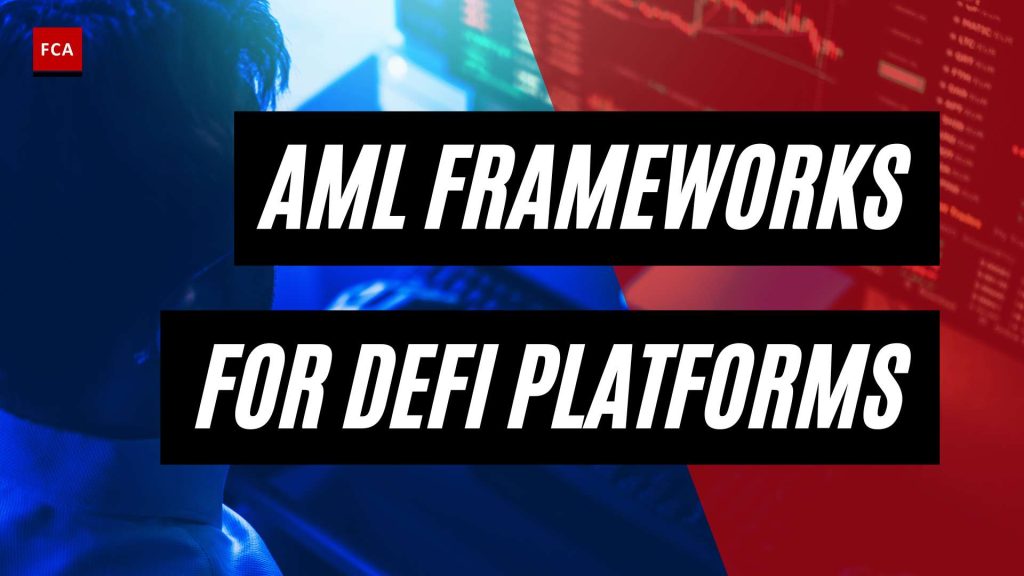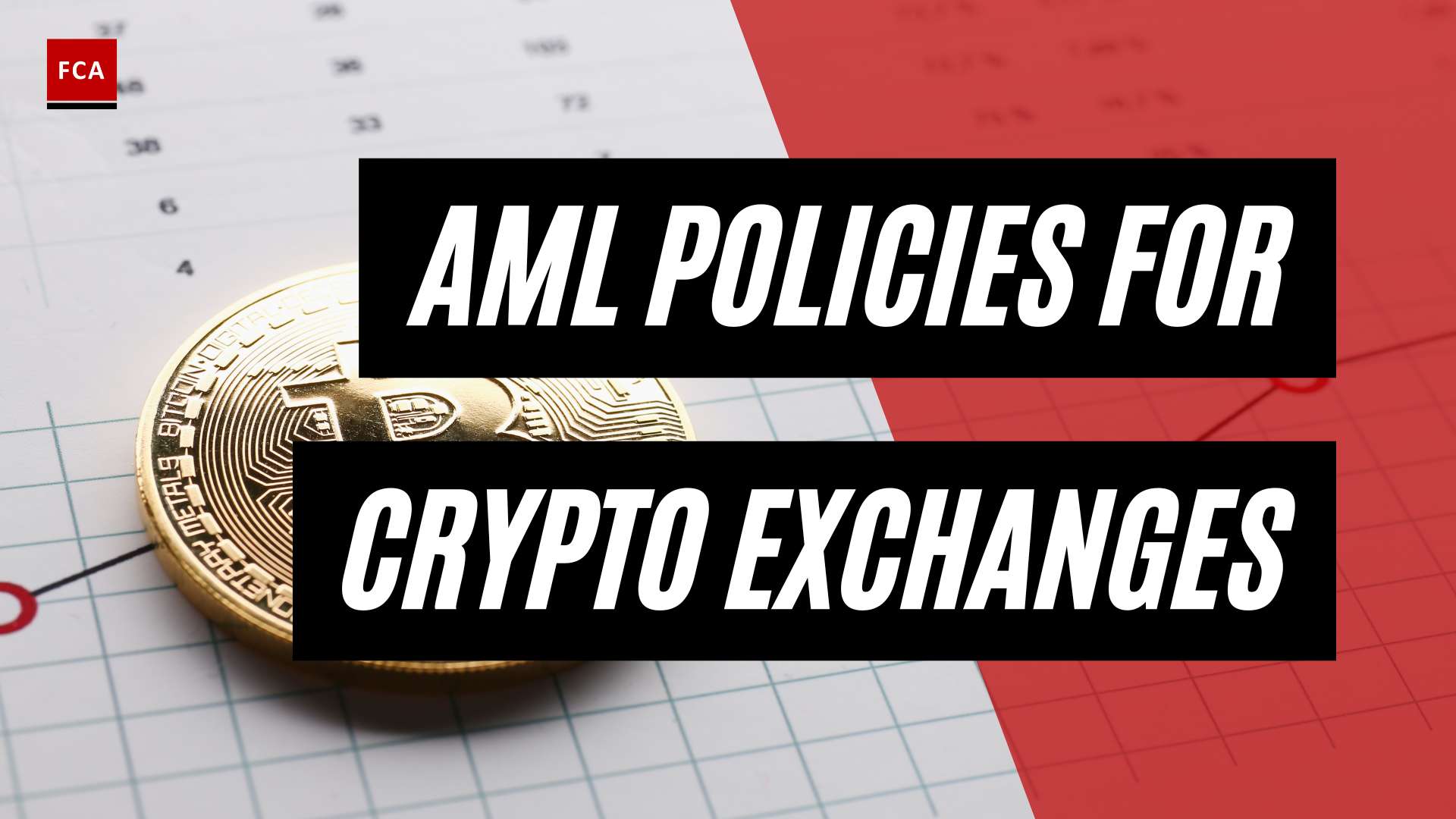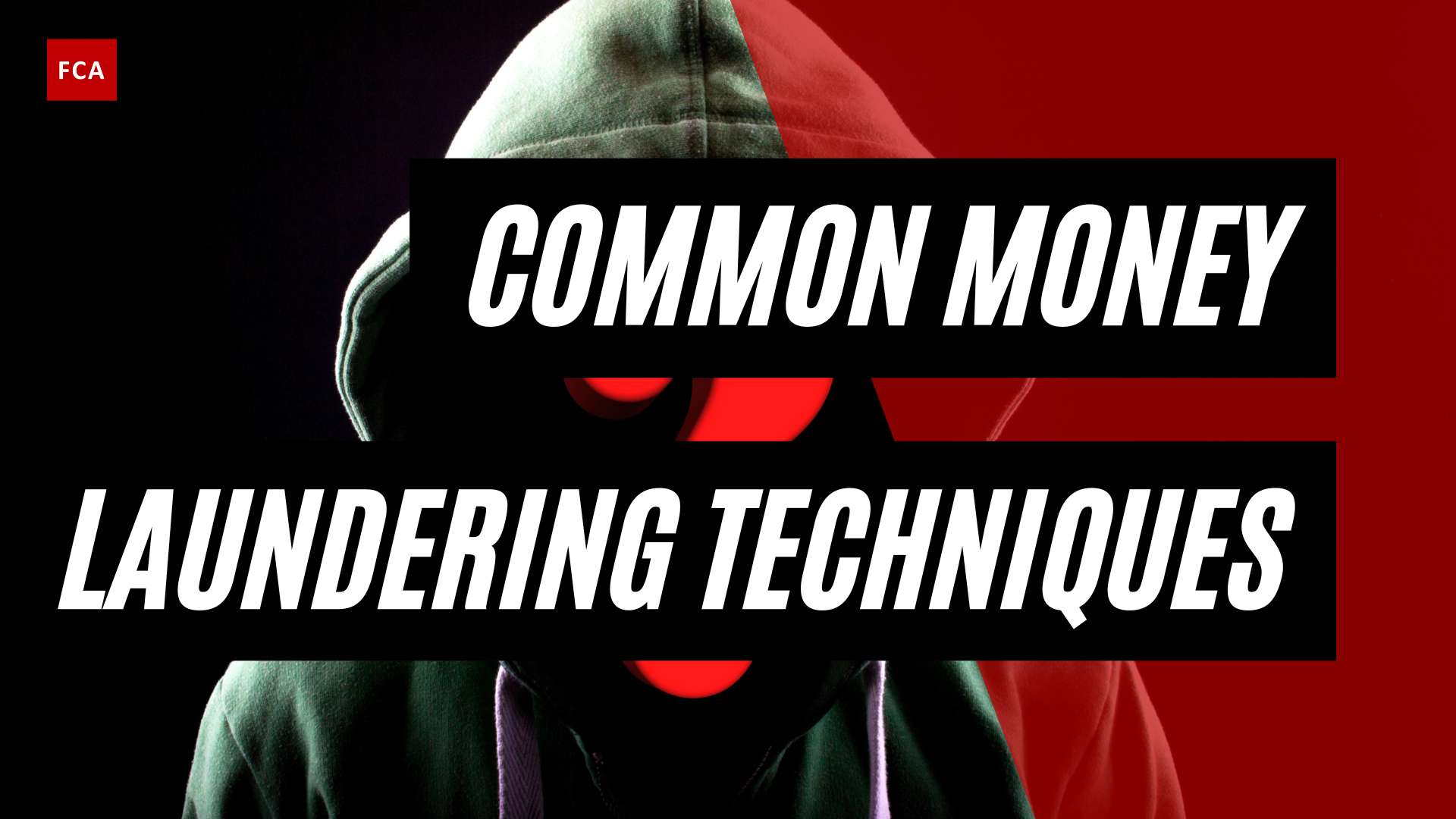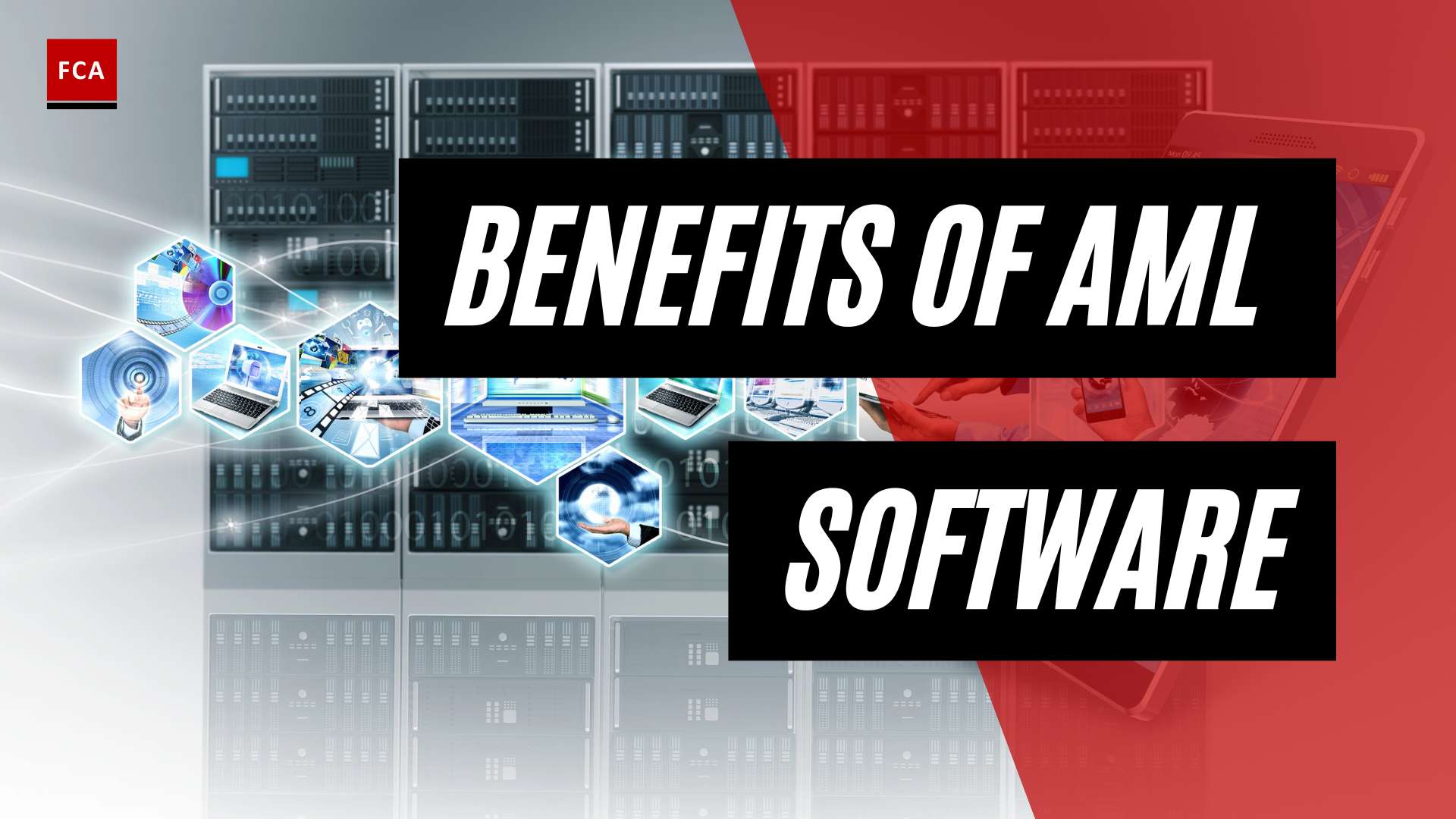Understanding AML in Decentralized Finance (DeFi)
As decentralized finance (DeFi) continues to gain prominence in the financial landscape, it is crucial to understand the role of anti-money laundering (AML) frameworks in ensuring compliance and mitigating money laundering risks. This section provides an introduction to AML in DeFi and highlights the challenges faced by DeFi platforms.
Introduction to AML in DeFi
DeFi refers to a decentralized financial system that utilizes blockchain technology to provide financial services without intermediaries. While DeFi platforms offer various innovative opportunities, they also attract illicit activities due to their global nature and decentralized structure. Therefore, implementing effective AML frameworks is essential to combat money laundering and adhere to regulatory requirements.
AML frameworks in DeFi encompass a set of policies, procedures, and technologies designed to detect and prevent money laundering activities. These frameworks aim to identify and mitigate the risks associated with illicit financial transactions, such as terrorism financing, fraud, and other financial crimes. By implementing robust AML measures, DeFi platforms can foster trust, integrity, and legitimacy within the ecosystem.
Challenges Faced by DeFi Platforms
DeFi platforms face several challenges when it comes to AML compliance. Firstly, the decentralized nature of these platforms makes it challenging to monitor and regulate transactions effectively. Traditional financial institutions have centralized systems that facilitate compliance, but DeFi platforms operate on a distributed network, making it more complex to implement AML measures.
Secondly, the anonymity of transactions in DeFi poses a significant challenge. While blockchain technology provides transparency, it also allows users to conduct transactions without revealing their identities. This anonymity creates opportunities for money launderers to exploit the system and obscure the origins of illicit funds.
To address these challenges, DeFi platforms must develop and implement AML frameworks tailored to their specific needs. These frameworks should include risk assessment processes, transaction monitoring systems, customer due diligence procedures, and suspicious activity reporting mechanisms. By incorporating these key elements, DeFi platforms can enhance compliance, detect potential money laundering activities, and safeguard the integrity of the decentralized financial ecosystem.
In the subsequent sections, we will delve deeper into the key elements of AML frameworks for DeFi platforms, explore ways to enhance AML compliance, and examine the regulatory landscape and unique challenges that arise in the context of DeFi.
Key Elements of AML Frameworks for DeFi Platforms
To ensure compliance with regulations and mitigate money laundering risks, DeFi platforms powered by AML frameworks should incorporate key elements into their systems. These elements include risk assessment processes, transaction monitoring systems, customer due diligence procedures, and suspicious activity reporting mechanisms.
Risk Assessment Processes
Risk assessment is an essential component of AML frameworks for DeFi platforms. It involves identifying and evaluating potential money laundering risks associated with specific activities, customers, or transactions. By conducting thorough risk assessments, platforms can tailor their AML measures to address the specific risks they face.
Risk assessment processes typically involve analyzing factors such as the nature of the DeFi platform, its user base, the types of transactions conducted, and the jurisdictions involved. This analysis helps platforms determine the level of risk associated with different activities and prioritize their AML efforts accordingly.
Transaction Monitoring Systems
Transaction monitoring systems play a critical role in detecting and flagging suspicious activities on DeFi platforms. These systems analyze transactional data in real-time, looking for patterns and anomalies that may indicate potential money laundering or other illicit activities.
By monitoring transactions, platforms can identify unusual or high-risk activities, such as large and frequent transfers, transactions involving high-risk jurisdictions, or transactions that deviate from established patterns. Once flagged, these transactions can undergo enhanced scrutiny and further investigation to determine their legitimacy.
Customer Due Diligence Procedures
Customer due diligence (CDD) procedures are an integral part of AML frameworks for DeFi platforms. CDD involves verifying the identities of customers and assessing their potential risk of involvement in money laundering or terrorist financing.
Platforms should implement robust CDD procedures that include identity verification, Know Your Customer (KYC) processes, and ongoing monitoring of customer transactions. By conducting thorough due diligence, platforms can mitigate the risk of facilitating illicit activities and ensure compliance with AML regulations.
Suspicious Activity Reporting Mechanisms
DeFi platforms should establish effective mechanisms for reporting suspicious activities to the appropriate authorities. These mechanisms enable the platforms to fulfill their obligations in reporting potential money laundering or terrorist financing activities as required by regulations.
By promptly reporting suspicious activities, platforms contribute to the broader efforts of combating financial crime. Reporting mechanisms should be well-defined, ensuring that platform operators and employees are aware of their responsibilities and the procedures to follow when encountering suspicious transactions.
By incorporating these key elements into their AML frameworks, DeFi platforms can enhance their compliance measures and mitigate the risks associated with money laundering and other illicit activities. To stay up to date with the evolving AML landscape in the DeFi space, platforms should regularly review and enhance their frameworks to adapt to new regulatory requirements and emerging threats.
Enhancing AML Compliance in DeFi Platforms
To strengthen anti-money laundering (AML) compliance in decentralized finance (DeFi) platforms, several key measures can be implemented. These measures include incorporating blockchain analytics tools, collaboration with regulatory authorities and financial institutions, and continuous monitoring and enhancement of AML frameworks.
Incorporating Blockchain Analytics Tools
Incorporating blockchain analytics tools into AML frameworks can significantly enhance the effectiveness of DeFi platforms in detecting and preventing illicit activities. These tools utilize advanced algorithms and data analysis techniques to identify and track suspicious transactions, detect patterns of money laundering, and ensure regulatory compliance in real-time. By leveraging the transparency and immutability of blockchain technology, these tools provide valuable insights into the flow of funds within the decentralized financial ecosystem.
Collaboration with Regulatory Authorities and Financial Institutions
Collaboration with regulatory authorities, law enforcement agencies, and financial institutions is crucial for DeFi platforms to strengthen their AML frameworks and combat financial crime effectively. By working closely with these entities, DeFi platforms can share intelligence on emerging threats, stay updated on regulatory developments, and foster a culture of compliance within the decentralized finance ecosystem. Such collaboration enables the development and implementation of effective AML guidelines and policies tailored to the unique characteristics of DeFi platforms.
Continuous Monitoring and Enhancement of AML Frameworks
The landscape of AML regulations in DeFi is continuously evolving. To adapt to these changes and address emerging risks, DeFi platforms must engage in continuous monitoring, assessment, and enhancement of their AML frameworks. This involves regularly reviewing and updating risk assessment processes, transaction monitoring systems, customer due diligence procedures, and suspicious activity reporting mechanisms. By staying proactive and responsive to regulatory requirements, DeFi platforms can maintain the integrity and trust of the decentralized financial system.
It is worth noting that the Financial Action Task Force (FATF) emphasizes the importance of effective risk assessments for DeFi platforms to understand and mitigate the financial crime risk they face. The FATF highlights the need for collaboration between DeFi platforms, regulators, and law enforcement agencies to effectively combat money laundering and terrorist financing in the DeFi space. Clear regulatory frameworks and guidance are essential to address the unique challenges posed by DeFi platforms (FATF).
By incorporating blockchain analytics tools, collaborating with regulatory authorities and financial institutions, and continuously monitoring and enhancing AML frameworks, DeFi platforms can strengthen their AML compliance efforts and contribute to a safer and more secure decentralized finance ecosystem.
Regulatory Landscape for AML in DeFi
As decentralized finance (DeFi) continues to gain traction, regulatory agencies around the world are working to establish guidelines and requirements for Anti-Money Laundering (AML) frameworks within the industry. Understanding the regulatory landscape is crucial for DeFi platforms to ensure compliance and mitigate AML risks. In this section, we will explore the regulatory landscape for AML in DeFi, focusing on the United States, the European Union, and the Financial Action Task Force (FATF) guidance.
U.S. Regulatory Agencies and Requirements
In the United States, several regulatory agencies oversee the DeFi space, including the Securities and Exchange Commission (SEC), the Commodity Futures Trading Commission (CFTC), and the Financial Crimes Enforcement Network (FinCEN) (LinkedIn). Depending on the nature of the platform and tokens, these agencies may assert regulatory authority over certain DeFi platforms and subject them to registration, disclosure, and other requirements (LinkedIn).
The SEC focuses on securities regulations and may consider certain tokens or offerings as securities, subjecting them to additional compliance measures. The CFTC oversees derivatives and may assert regulatory authority if DeFi platforms engage in derivative trading. FinCEN, on the other hand, plays a vital role in combating money laundering and terrorist financing, requiring DeFi platforms to implement AML programs and report suspicious activities.
European Union Regulations and Compliance
DeFi platforms operating within the European Union (EU) may be subject to existing regulations, such as the Markets in Financial Instruments Directive (MiFID II) and the Prospectus Regulation, depending on the nature of their services. The European Securities and Markets Authority (ESMA) and the European Banking Authority (EBA) play significant roles in shaping DeFi regulation in the EU (LinkedIn).
These regulatory bodies aim to ensure investor protection, market integrity, and financial stability. They require DeFi platforms to adhere to AML and know-your-customer (KYC) requirements, perform risk assessments, and implement appropriate customer due diligence procedures.
Financial Action Task Force (FATF) Guidance
The Financial Action Task Force (FATF) has recognized the unique challenges faced by DeFi platforms in implementing AML and Combating the Financing of Terrorism (CFT) frameworks. These challenges include the difficulty of addressing risks associated with anonymity, complex transaction structures, and cross-border transactions (FATF).
To address these challenges, the FATF has updated its guidance to include virtual assets and Virtual Asset Service Providers (VASPs). This guidance emphasizes the importance of implementing robust AML/CFT measures in DeFi platforms and highlights the need for cooperation between regulators, financial institutions, and DeFi platforms to ensure effective AML compliance (FATF).
By staying informed about the regulatory landscape, DeFi platforms can navigate the complexities of AML compliance more effectively. Collaboration with regulatory authorities, implementation of necessary AML frameworks, and continuous monitoring and enhancement of AML programs are essential steps to ensure compliance and foster trust within the DeFi ecosystem.
Unique AML Challenges in DeFi
As decentralized finance (DeFi) continues to gain traction, it brings forth unique challenges for implementing effective Anti-Money Laundering (AML) frameworks. Understanding these challenges is crucial for AML compliance in decentralized finance platforms.
Decentralized Nature and Anonymity of Transactions
One of the primary challenges faced by DeFi platforms is the decentralized nature and anonymity of transactions. Unlike traditional financial systems where intermediaries play a role in transaction monitoring and identity verification, DeFi platforms operate in a decentralized manner, allowing users to transact directly with one another. This anonymity poses challenges for AML efforts, as it becomes more difficult to identify and verify the identities of individuals involved in transactions.
Moreover, the cross-border nature of many DeFi transactions adds another layer of complexity. With participants from different jurisdictions, the application of AML regulations becomes more challenging. It requires cooperation and coordination between regulatory authorities globally to ensure consistent AML enforcement across borders.
Smart Contracts and Compliance Measures
In DeFi, smart contracts play a significant role in automating various financial processes. These contracts are self-executing and immutable, making it difficult to modify or enforce traditional compliance measures. This creates a unique challenge for AML efforts in DeFi platforms as traditional compliance mechanisms may not be directly applicable to smart contracts.
To address these challenges, DeFi platforms need to explore innovative solutions that integrate compliance measures directly into smart contracts. By leveraging technologies such as blockchain analytics and transaction monitoring tools, platforms can enhance their AML capabilities. These tools enable the identification and tracking of suspicious transactions, detection of patterns of money laundering, and real-time regulatory compliance.
With the rapid evolution of DeFi, regulatory bodies such as the Financial Action Task Force (FATF) have recognized the challenges and risks associated with AML and decentralized finance. They emphasize the need for AML frameworks to adapt to the unique characteristics of DeFi platforms, such as anonymity and complex transaction structures (FATF).
In summary, the decentralized nature and anonymity of transactions in DeFi, along with the challenges posed by smart contracts, require innovative approaches to AML compliance. By incorporating new technologies, collaborating with regulatory authorities and financial institutions, and continuously monitoring and enhancing AML frameworks, DeFi platforms can mitigate money laundering risks and ensure compliance with AML regulations in this rapidly evolving landscape.
Addressing AML Compliance in the Metaverse
As decentralized finance (DeFi) expands into the realm of the Metaverse, new challenges and considerations arise regarding anti-money laundering (AML) compliance. AML compliance in the Metaverse is crucial to prevent illicit activities, such as money laundering and terrorist financing, while ensuring the integrity of financial transactions. In this section, we will explore three key aspects of AML compliance in the Metaverse: AML compliance in decentralized marketplaces, the AML risks associated with NFTs, and the debate between centralized and decentralized approaches.
AML Compliance in Decentralized Marketplaces
Decentralized marketplaces within the Metaverse provide opportunities for individuals to buy, sell, and trade various digital assets, including cryptocurrencies and non-fungible tokens (NFTs). However, the decentralized nature of these marketplaces presents challenges when it comes to AML compliance. The use of pseudonymous addresses and the lack of centralized authorities monitoring financial transactions can potentially facilitate illicit activities.
To address AML compliance in decentralized marketplaces, it is essential to implement robust AML measures. This includes conducting thorough customer due diligence procedures to verify the identities of participants, implementing transaction monitoring systems to detect suspicious activities, and establishing mechanisms for reporting suspicious transactions. Additionally, collaboration with regulatory authorities and financial institutions can help ensure compliance with AML regulations and enhance the overall integrity of the Metaverse ecosystem.
NFTs in the Metaverse and AML Risks
NFTs have gained significant popularity in the Metaverse, allowing for the ownership and trading of unique digital assets. While NFTs provide provenance and reduce fraud in the digital asset space, they also pose AML risks. The decentralized and anonymous nature of NFT transactions can be exploited for illicit purposes, such as money laundering. The use of pseudonymous wallets and the potential for layering transactions create challenges for tracking and monitoring AML activities.
To mitigate AML risks associated with NFTs in the Metaverse, AML guidelines for DeFi projects and protocols should be established. These guidelines can include implementing AML procedures within NFT transactions, conducting audits to ensure compliance with AML policies, and utilizing AML tools that leverage blockchain analytics to monitor and detect suspicious activities. By implementing these measures, the Metaverse can strike a balance between innovation and regulatory compliance.
Centralized vs. Decentralized Approaches
The debate between centralized and decentralized approaches in addressing AML compliance in the Metaverse is ongoing. Some argue for the establishment of centralized authorities to monitor financial transactions and enforce AML regulations. Centralized approaches can provide more control and oversight, facilitating the identification of potential AML activities. However, they may conflict with the decentralized principles that underpin the Metaverse.
On the other hand, decentralized approaches leverage smart contracts and blockchain technology to enhance transparency and accountability in financial activities. By incorporating AML procedures into smart contracts and utilizing decentralized systems, the Metaverse can maintain the integrity of financial transactions while preserving the decentralized nature of the ecosystem. Striking the right balance between centralized and decentralized approaches is crucial to effectively address AML compliance in the Metaverse.
As the Metaverse continues to evolve, AML compliance will play a vital role in ensuring the integrity and security of financial activities within this decentralized virtual world. By implementing robust AML frameworks, collaborating with regulatory authorities and financial institutions, and exploring innovative approaches, the Metaverse can successfully navigate the AML landscape and foster a safe and compliant environment for participants.
Addressing AML Compliance in the Metaverse
As the decentralized finance (DeFi) space expands into the metaverse, the need for robust anti-money laundering (AML) frameworks becomes even more crucial. DeFi platforms operating within the metaverse face unique challenges that require tailored AML measures. In this section, we will explore the key considerations and risks associated with AML compliance in the metaverse.
AML Compliance in Decentralized Marketplaces
Decentralized marketplaces within the metaverse introduce new opportunities for financial transactions and interactions. However, the decentralized nature of these marketplaces can also pose challenges for AML compliance. Due to the anonymity and pseudonymity associated with decentralized transactions, identifying individuals involved in DeFi transactions can be difficult. This hindrance may make the implementation of traditional AML requirements more complex. Collaborative efforts between DeFi platforms, regulators, and law enforcement agencies are essential to develop innovative solutions for AML compliance in the metaverse (Sanction Scanner).
NFTs in the Metaverse and AML Risks
Non-fungible tokens (NFTs) have gained significant popularity within the metaverse. While NFTs offer unique opportunities for digital ownership and creativity, they also present potential AML risks. The use of NFTs for money laundering and illicit activities is a concern that requires careful attention. DeFi platforms operating in the metaverse should implement robust transaction monitoring systems to identify suspicious activities associated with NFTs. Additionally, customer due diligence procedures should be applied to ensure compliance with AML regulations.
Centralized vs. Decentralized Approaches
When it comes to AML compliance in the metaverse, a key consideration is whether to adopt a centralized or decentralized approach. Centralized platforms may have a more structured framework for AML compliance, as they can implement stricter controls and conduct thorough customer due diligence procedures. However, decentralized platforms can also offer transparency and accountability through the use of blockchain technology. The challenge lies in striking a balance between maintaining the decentralized nature of the metaverse while adhering to AML regulations.
To address AML compliance challenges in the metaverse, DeFi platforms should work closely with regulatory authorities, financial institutions, and technology providers. Collaboration is crucial in developing effective AML frameworks that can adapt to the unique characteristics of the metaverse. Regulatory guidance and clear frameworks are necessary to ensure consistent AML compliance across different jurisdictions (FATF).
As the metaverse continues to evolve, AML compliance will remain a critical aspect of ensuring the integrity and security of decentralized finance. DeFi platforms operating within the metaverse must stay abreast of emerging AML guidelines, technological advancements, and regulatory requirements to effectively combat money laundering and uphold the trust of users and stakeholders. By proactively addressing AML compliance challenges, DeFi platforms can contribute to the growth and sustainability of the metaverse ecosystem.









